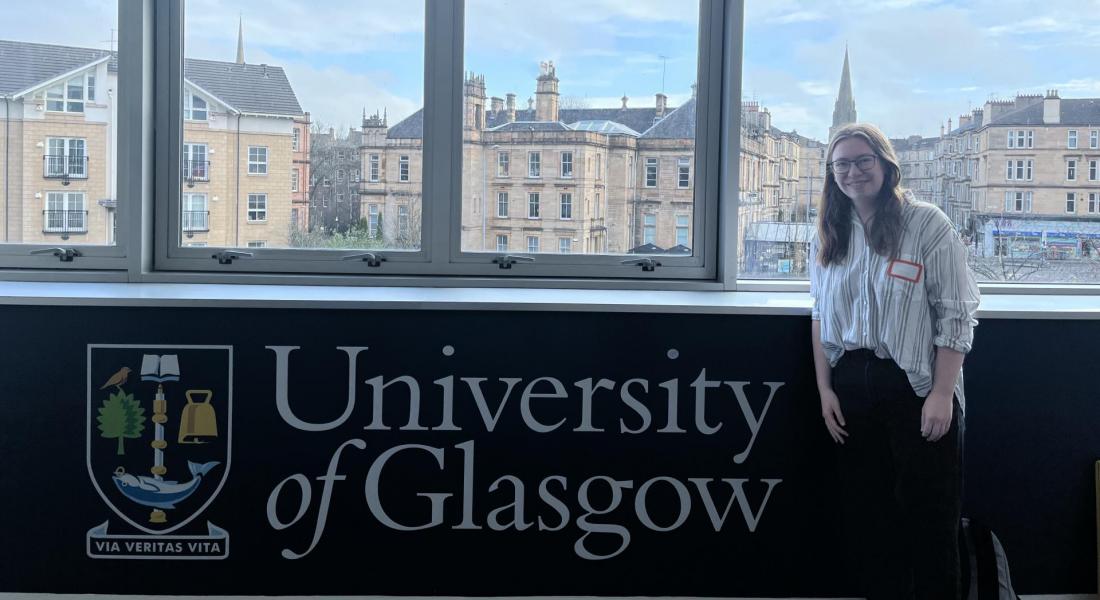
At the end of March, I had the opportunity to travel to Scotland to present a piece of independent research at the 2023 Celtic Students Conference, held at the University of Glasgow. My paper was inspired and supported by my faculty adviser in the International Scholars Program, Professor Ó Conchubhair, and drew on his work regarding the linguistic politics of Ireland. More specifically, my paper, titled “Under Pressure: The Role of An Dream Dearg in Northern Irish Language Politics” focused on a group called An Dream Dearg (“The Red Group”) and its role in securing the passage of the Identity and Language Act in December 2022, which gave Irish official status in Northern Ireland. This was a natural fit given that Clíodhna Ní Chorráin, a member of the group, is currently a Fulbright FLTA at Notre Dame. I was able to interview her back in November and this proved invaluable as I went on to speak with other group members later. My research process was certainly a labor of love since I’m currently spending the semester in Washington DC, requiring me to juggle classes, an internship and seeing the city while also working on my paper, but I couldn’t be happier with the end result. Though I was nervous to present my work to scholars of both Irish and the wider Celtic areas of study, the other presenters were hugely welcoming and immediately put my mind at ease.
The conference spanned three days, which was great because not only did I get to listen to some really interesting talks (which ranged from an analysis of a specific chapter of an Old Welsh text to an explanation of how language models can be trained using AI to develop speech-to-text tools for minority languages), I also got to really know the other attendees. At the conference lunches, the music concert, and over tea and coffee breaks, I had some of the most engaging and helpful conversations of the week. I heard from a Manx speaker about efforts to revive the language in recent years (Manx is the native language of the Isle of Man), I spoke with multiple doctoral students about their experiences, I heard Scottish Gaelic speakers weigh in on a debate regarding the difference between a language and a dialect, and I learned a great deal about linguistics.
As a result, when it came time to present my paper on the final day of the conference, I felt ready to get up there and share my research! My paper was one of the few on contemporary politics, which, again, made me somewhat nervous initially, but actually ended up resulting in a great, interactive Q&A portion. The Q&A became a space to discuss themes that the conference hadn’t touched on so far and I was asked some insightful questions that have certainly affected the way I see my own research and where it might fill a niche in existing scholarship. Similarly, even after my talk ended, other scholars came up to me to offer their support and advice and I ended up having some really fruitful conversations which have left me with much to think about as I travel back to DC. I’d now love to do a comparative study with Welsh language activism, look more at the relationship between language rights and language activism across the island of Ireland as a whole, or even investigate the role of the European Charter for Regional and Minority Languages in protecting minority languages. Attending and presenting at the Celtic Students Conference was an incredible experience which I know will stay with me for a long time to come, and which I am confident will continue to impact my research both now and in the future.





